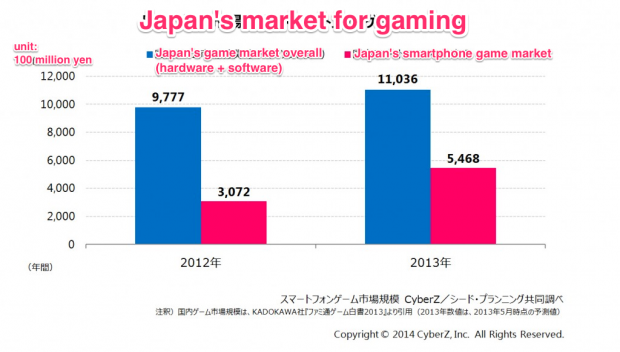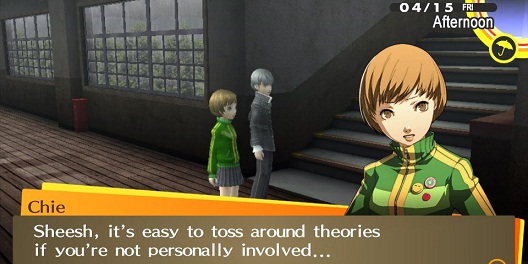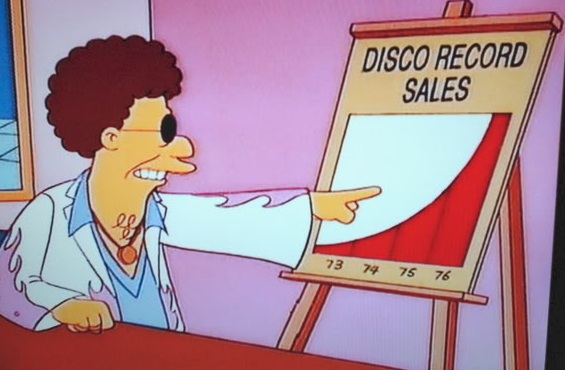Doom. Also, gloom.
Japan is mere minutes away from its first national consumption tax increase in 17 years. When the fiscal year begins on April 1, the rate will jump from 5% to 8%, and is set to take another step up to 10% in October of 2015, meaning the rate will have doubled in the space of only a year and a half. The tax applies to virtually all goods and services, and its impact will be felt at all levels. Concern is widespread. All over Japan, shop owners await nervously, many handing out coupons and other discount vouchers as they preemptively fight to keep their customer base.
Kanako Kimura, a certified tax accountant in Japan, told me that she expects most people to cut back spending, at least a little bit. In her own life, she's going to cut down on "luxury foods" such as chocolate and cakes, though she laughed when she admitted she won't be cutting out beer. Kimura plans to consider each expenditure carefully, especially travel and entertainment costs. She anticipates many Japanese people will do the same.
When Japan's tax rate last increased in April of 1997, times were tough in the short term. After moderately recovering in 1998, the economy spent the rest of the '90s in a nose dive, as consumers became much more tight-fisted with their hard-earned yen. There were actually PR campaigns for people to stop saving so much money.
This April might mark a transition period for the Japanese game industry. But what kind?
Nintendo's Wii U is selling horribly. Vita spent a year and a half in obscurity and only carved out a niche after a system redesign and a 20% price drop. PlayStation 4's debut month has it tracking behind the under-performing Wii U; a fact which some will disregard due to Nintendo's favorable December launch, but the PS4 is also trailing other past systems (handheld and TV) that released in non-holiday times. Even 3DS, the usual king of the Japanese hardware sales charts, spent its first six months selling terribly, leading Nintendo to drop the price by 7,000 yen (about $70).
And even though we think of 3DS as selling like hotcakes so consistently, it's really only selling that well in comparison to the other current systems. Historically speaking, it would not have been the winner of the previous generation. (Making money is more important than ranking, anyway.)

Now consider all of the above with the incoming tax jump. Game systems aren't cheap, so a consumption tax increase raises their prices considerably. Meanwhile, the mobile game boom
is very real. So much so that this new tax could speed up the arrival of a mobile future.
Console enthusiasts (including myself) have often written mobile gaming off as a trend that will go away because "mobile games are crap," but what we're learning is that most people are totally okay with crap. You and I might prefer our handheld gaming experiences to offer the strategy of Fire Emblem, the endless content of Animal Crossing, the crack-cocaine RPG structure of Persona, or the pulse-pounding combat of Soul Sacrifice, but that's clearly not the case for everyone. It's true that Game Boy and its rivals may have been as popular as they were because of great games, but they also might owe a debt to having been pretty much the only option for portable gaming at the time. Those Tiger things weren't even close to being in the same league. Even during the DS and PSP days, games on phones weren't on the level that they are now. It's not that phone/tablet games have become amazing, but rather that they've become good enough for a very large number of people.

You might write these groups off as "casual gamers," but the fact is, the bank sees their money and your money as equal. If they're no longer part of a game's potential audience, there will be a paradigm shift in the industry. We're already seeing the steps; Square Enix gets fan outrage all the time about its mobile stuff, and yet, it keeps making money. Those guys will want to keep putting food on their tables, so don't expect mobile to fade into the night.
Mobile gaming is already cheaper than console gaming for either of the major handhelds, but this year it will gain yet another price advantage, as the prices of physical games go up while digital goods remain unaffected. Since all phone games will be digital and phones are seen as more of a "necessity" than dedicated gaming handhelds, phones will have an easier time than ever at closing the gap and then breaking away from the pack.

It's true that this digital dodge can be applied to the PSN and Nintendo e-shop as well, though there are doubts about their ability to keep up with the dirt-cheap prices and instant gratification of their phone-based competition. At the 2012 Tokyo Game Show, I was told that under 10% of Japanese sales for games on Sony's or Nintendo's systems were digital. That figure has likely taken a slight step up in the year and a half since, but physical media still rules… for now. If stores are threatened and Japan moves closer to a digital revolution, the gaming landscape is in for some big changes. Will there be even fewer Japanese-developed games? Fewer games getting physical versions? As of right now, no one can say for sure.
2014 will be an interesting year for game hardware and software sales. Whether they go up, go down, or stay the same amid Japan's tax increase and population decrease is anyone's guess. Whatever does happen, however, could affect us all.















